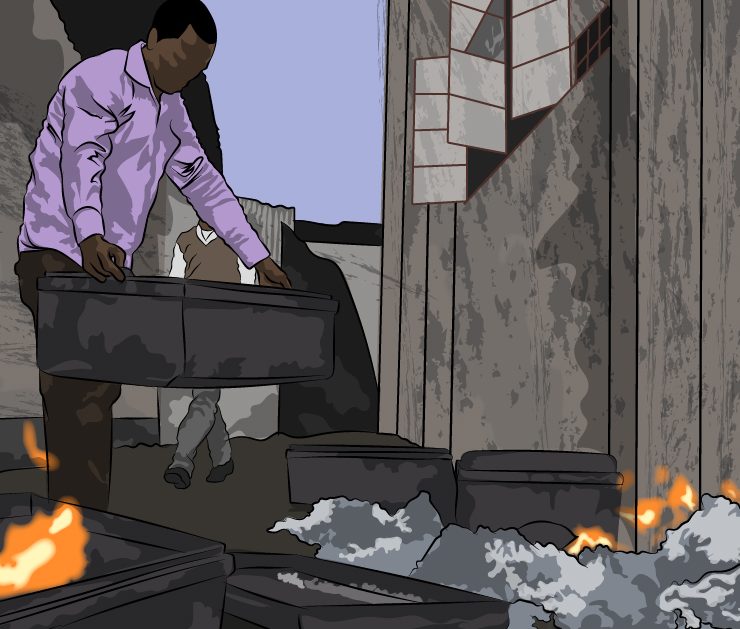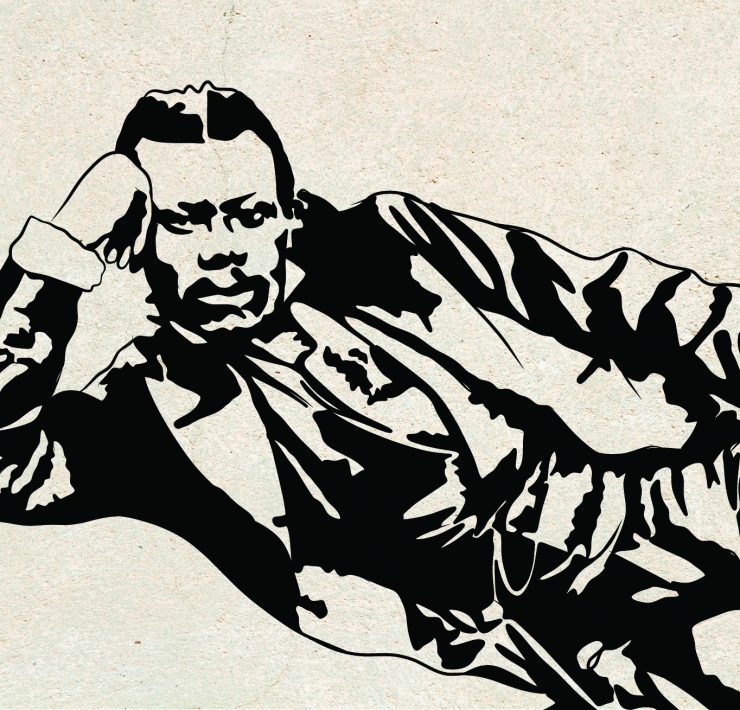President Museveni shut down the internet completely ahead of the Uganda 2021 Presidential and Parliamentary election. It was restored four days later. A local journalist narrates how this affected news coverage.
Part 1
It was January 13, a day before Uganda’s 2021 general election. As the 9PM bulletin approached, the newsroom got more chaotic than usual. Over time, one gets used to the tussles between reporters and producers as they finalise stories of the day, ready for transmission. But the eve of what was promising to be one of Uganda’s most hotly contested presidential elections brought with it a different kind of pressure.
Yet as everyone else seemed busy and restless, Kasozi*, a reporter with a leading media house in Uganda, was quietly readying himself for his out-of-town assignment. He had been assigned Entebbe, a town on the shores of Lake Victoria, from where he was supposed to cover the elections for three days. Entebbe was approximately 40 kilometres away.
Amid the chaos, Kasozi tried sending an email to his managing editor to tie up a few loose ends regarding the assignment. It bounced. He pressed send again. No response. He tried one last time. The email did not move an inch.
Kasozi walked across the newsroom to Lutalo*, the tech guy running the night shift. “Lutaa,” he called out. “I think there’s something wrong with my machine.” Lutalo asked for a minute to run a quick system audit. He could not troubleshoot. Field reporters started calling in, with the disappointing news that they too couldn’t upload their stories. It didn’t take a long time before the entire newsroom was in a state of semi-paralysis.
Seeing no reprieve in sight, Lutalo contacted the media house’s Internet Service Provider (ISP). They confirmed their worst fears; all ISPs had cut off connectivity across Uganda. This was the first time all of Uganda’s 17.5 million internet users were coming face to face with a total shutdown.
On the days leading up to the election, Kasozi noticed that the internet had been throttled and social media sites had been blocked. On January 11, Facebook shut down accounts suspected to be pushing the governing National Resistance Movement’s propaganda. To retaliate, President Yoweri Museveni ordered the complete shutdown of Facebook in Uganda.
Kasozi’s disappointment was exacerbated by the fact that he had been contracted by an international media outlet as its Uganda correspondent during this election. Back in London, his editor had finished drafting a video script for Kasozi to voice. Kasozi couldn’t see the email nor could he read his editor’s WhatsApp messages. This was a clusterfuck considering the story they were working on was time-bound and needed to be published before Ugandans went to the polls. None of the Virtual Private Networks (VPNs) Kasozi had installed on his devices could bail him out. Kasozi and his editor were still on call at 1AM on election day, re-strategizing how best to cover the elections under the circumstances.
Part 2
At 2AM, Kasozi and his crew set out for Entebbe. Filming began on arrival, with the camera crew following Electoral Commission officials as they dropped off ballot papers.
“We had to go back to the old-fashioned way of covering news,” Kasozi says.
What should have been a quick process of recording footage, editing, connecting to Mi-Fi then sharing the files with his editors ended up being a tedious exercise.
“We had carried two cards,’’ Kasozi recounts. ‘‘Once one was full, we would send a bodaboda to take it back to the newsroom in Kampala, where the editors would dump the footage then send back the rider with the card, for the whole process to start all over again.”
This became their routine for the three days he was in the field.
At the close of the third day of coverage, the bodaboda rider had made a total of 24 trips. But even with that, Kasozi and his team were constantly running behind on coverage by at least two hours. Kasozi made live updates at the top of every hour through phone calls. It wasn’t any easier for his counterparts reporting for print media. They would send in their reports through text messages, three paragraphs in each text, until they had filed a complete story.
Every thirty minutes or so, Kasozi would receive calls from friends and family inquiring about which candidate had won what districts. Others called to verify whether this or that rumour was credible. Kasozi had to incur extra airtime costs calling contacts across Uganda, something he would have ordinarily handled through a simple WhatsApp message. But what was even more disheartening was the fact that the internet shutdown had precipitated a misinformation pandemic just going by the amount of rumours he had to countercheck.
“At times I would get my phone and start typing on Google Search,’’ Kasozi recollects, ‘‘only to remember that I do not have internet.”
On Saturday, just after Museveni was declared the winner, Kasozi received a call from his editor in London. He had just gotten back to his hotel room after a long day of reporting.
“There are hardly any people on the streets celebrating,” he observed. It felt unnatural. After the politically mind-numbing week he had, Kasozi did not want to discuss Ugandan politics anymore. His intention was to unwind, preferably watch basketball reruns on YouTube. But he couldn’t. With the shutdown still in effect, he could only watch TV. He wasn’t a fan.
This was not the first election in which the Ugandan government has choked social media platforms. During the 2016 general elections, the Uganda Communications Commission, the government’s licencing and regulatory agency, ordered telecommunication companies to block Twitter and Facebook.
According to a 2019 report by the Collaboration on International ICT Policy for East and Southern Africa (CIPESA), countries whose leaders have been in power for over a decade are more likely to order internet shutdowns. As of early January 2019, 11 of the 14 African leaders who had been in power for 13 or more years had ordered shutdowns, mostly during election periods and public protests against government policies.
Museveni has been in power for the past 35 years now and was on January 16, 2021, elected to rule for another five years.
Internet was partially restored in Uganda on January 18. However, social media apps remained blocked and were only accessible through a VPN. In an ironic twist, the Ugandan government announced through Twitter that social media sites will remain blocked since Facebook and Twitter did not heed to their request to restore accounts belonging to government officials that were shut prior to the election.
(Names have been changed to conceal identity.)





